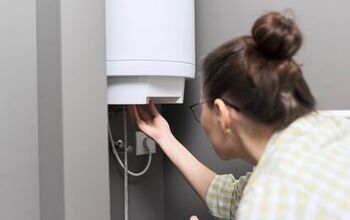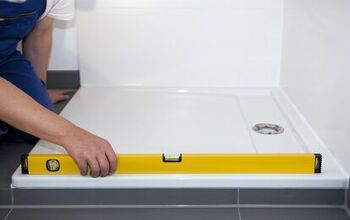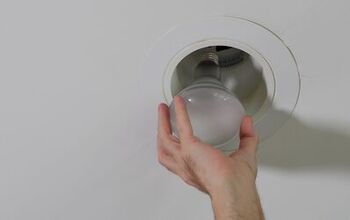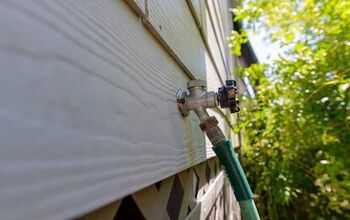How Often Should I Flush A Water Heater?

Having a water heater is a privilege, but it comes with responsibilities. Maintenance is a part of having any plumbing fixture, even if it isn’t fun to do. So, how often should I flush a water heater?
You must flush your water heater once every 6 to 12 months to ensure it functions well. Otherwise, your water may become rusty and filled with sediment that would otherwise be eliminated by flushing the tank. Flushing the tank can also improve the water pressure and temperature throughout your home.
The average cost to flush a water heater is $160, but it depends on your system and who you hire to do it. Doing so can reduce your energy bills, as your heater won’t have to work as hard, so it’s worth the cost. Follow along as we explore how often you should flush a water heater.
When Should You Flush Your Water Heater?
You should flush your water heater at least once per year. However, many people flush their water heaters every 6 months. That’s especially a good idea if your home has hard water. Your water heater will quickly become full of sediment if your water supply has a high mineral content.
The longer you go without flushing your water heater, the more the unit will suffer. Sediment will eventually surround your heating element and make it work much harder. This can damage the heating element and make it less efficient.
It’s worth finding a company that lets you sign up for a maintenance plan. This can help save money on preventative maintenance and ensure you stay up to date on flushing your water heater.
How Do I Know If My Water Heater Needs To Be Flushed?
1. Rusty Water
Is your tap water rusty? If so, that could be a sign your water heater is full of minerals and rust that must be flushed. However, rusty water typically means that you’ve waited far too long to flush your water heater. By that point, it becomes an emergency.
That said, rusty water may also indicate a problem with your water heater’s anode rod. Anode rods keep the water clean by attracting rust, so the rod gets rusty instead of the water in your heater.
However, anode rods eventually become too rusty and can no longer attract sediment and rust. Once this happens, the water will become rusty, and you must replace the rod. While you’re at it, it’s a great idea to flush the tank as well.
2. Your Water Isn’t Hot Enough
Lukewarm tap water typically comes down to problems with your water heater. For example, it may point to a faulty heating element that needs to be replaced. However, a heating element can also perform poorly if it’s surrounded by sediment.
Excessive sediment can stop a heating element from working at full capacity. In that case, the only way to fix this problem is to flush your water heater. This will make the heating element work better, reduce noise, and improve water clarity.
Sediment can also make it take much longer for a heating element to work. You will notice a quicker reaction time after you flush your water heater. That means you won’t have to wait too long before your shower water becomes the right temperature.
3. Excessive Noise
Water heaters are somewhat noisy when they run, and most homeowners get used to the sounds. However, unusual sounds can indicate that something is wrong with your water heater. For example, popping sounds often mean that there is too much sediment in your water heater.
The motion of the sediment against the walls of your water heater can get loud. In that case, the only way to fix this problem is to flush your water heater. You can avoid this problem if you routinely flush your water heater every 6-12 months.
4. Poor Water Pressure
Many people associate poor water pressure with local water supply issues. While that is possible, it may simply be a problem with your water heater. Water heaters have pipes that carry water away from them to distribute to your plumbing fixtures.
As sediment builds up in your water heater, it can eventually clog these pipes. This can significantly restrict the flow of water from your water heater to the pipes. Flushing your water heater should fix this problem.
However, you may have to hire a plumber to unclog the pipes as well. That only applies to extreme cases where the pipes become narrow and caked with debris.
5. Debris In Your Water
The last thing anyone wants to do is drink water that is full of sediment. It’s all too easy to drink water without paying attention, as we all expect our water to be safe. However, it’s important to inspect your water before drinking or washing your dishes with it if you’re behind on water heater maintenance.
For example, you may notice sediment on your dishes after you hand-wash or run them through the dishwasher. This can stain your dishes and even your shower floor if you let the problem get out of hand. Granted, this only typically happens if you put off flushing your water for a long time.
The sediment may not be unsafe, but it’s not comfortable to bathe in or consume. Flush your water heater right away if you find sediment in your glass of water or bathtub. You will quickly notice that your dishes look much better when you’re done washing them as there won’t be mineral stains.
6. Expensive Bills
The more clogged your water heater is with sediment, the harder it must work. Not only does this strain your water heater, but it also leads to higher energy bills. That’s because excessive sediment is taxing on your heating element and water heater as a whole.
It’s not worth the extra money, as your water heater won’t work nearly as well. You will pay more for a poor performance. Flushing your water heater can reduce your energy bills.
How Much Does It Cost To Flush A Water Heater?
It costs an average of $160 to flush a water heater with professional help. The most that homeowners typically spend on flushing their water heaters is $200, but there are exceptions. However, you can avoid this cost if you flush your water heater without professional help.
That said, this requires some basic plumbing knowledge. After all, the last thing you want to do is damage your water heater. You must shut the unit’s power off, run some hot water, connect a hose to the drain valve, and drain the water until it becomes clear.
However, it’s all too easy to give up before the water heater tank is as clean as it should be. Many people also make the mistake of draining the tank before relieving enough pressure. In that case, it’s worth the cost to hire a plumber to flush your water heater.
Summing It Up
Ideally, you should flush your water heater once yearly, or as needed if you notice a problem. For example, some people flush their water heaters every 6 months if they have hard water. Flush your water heater right away if you notice discolored water, poor pressure, and lukewarm water.
Related Guides:

Nick Durante is a professional writer with a primary focus on home improvement. When he is not writing about home improvement or taking on projects around the house, he likes to read and create art. He is always looking towards the newest trends in home improvement.
More by Nick Durante

























![10 Most Dangerous Neighborhoods in Baltimore [Updated]](https://cdn-fastly.upgradedhome.com/media/2023/07/31/9075655/10-most-dangerous-neighborhoods-in-baltimore-updated.jpg?size=350x220)

